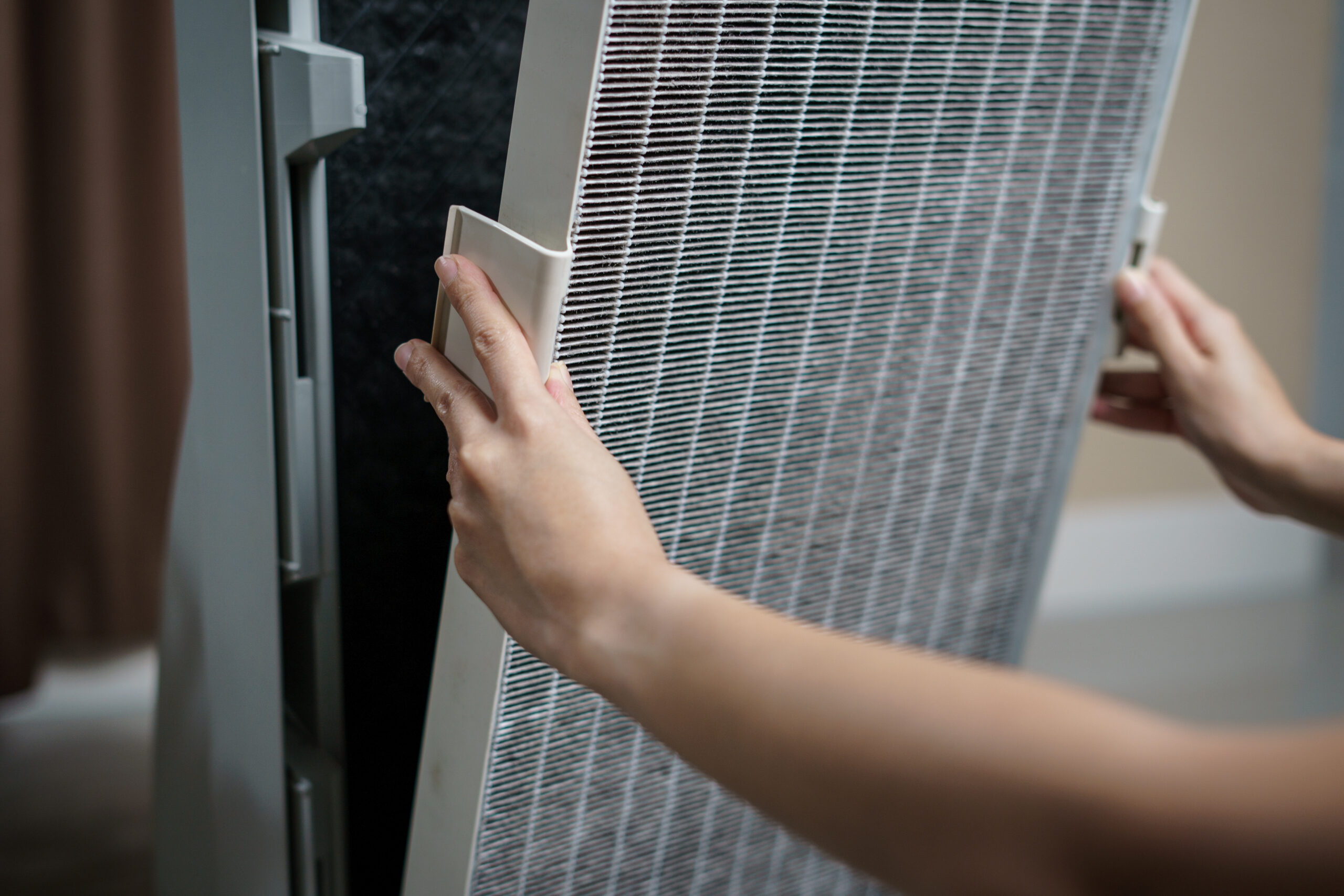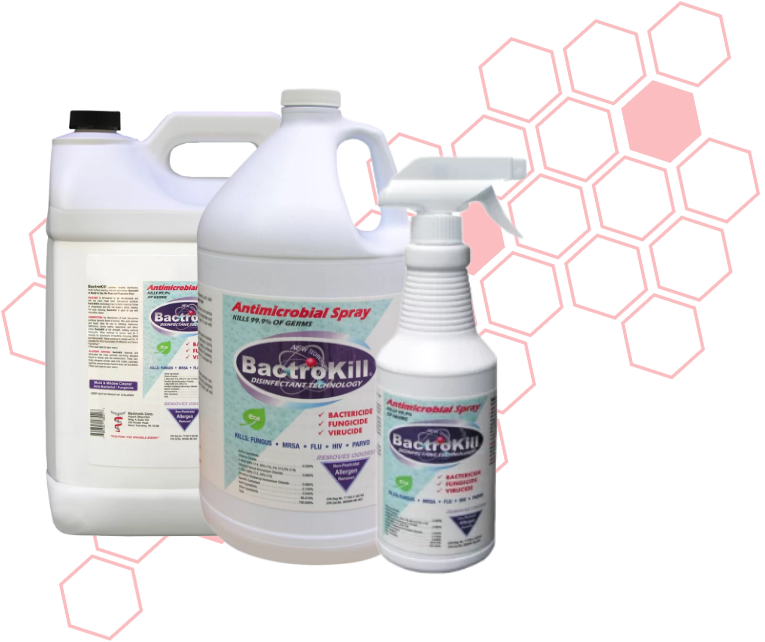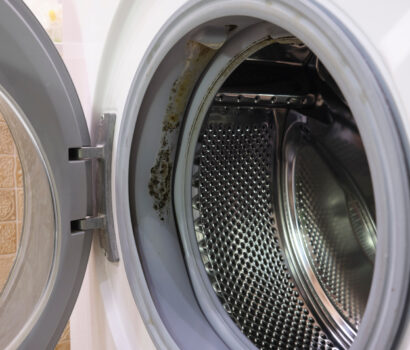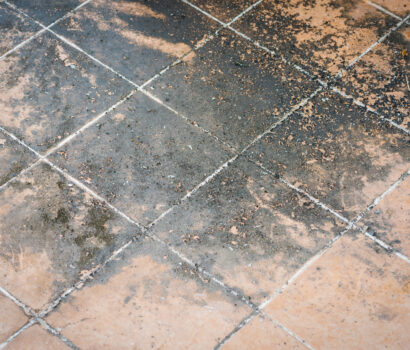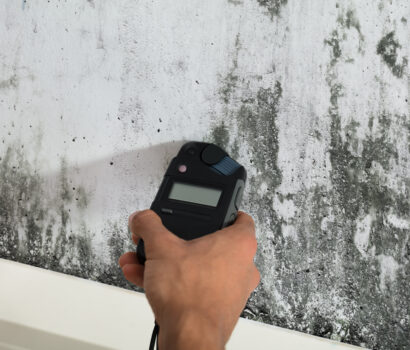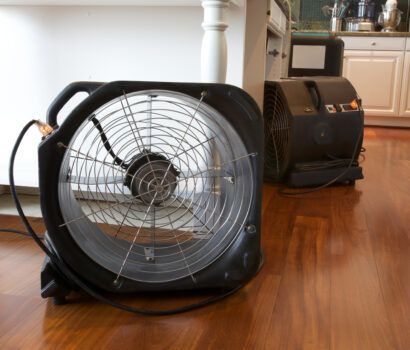Indoor air has the potential to be full of contaminants – mold spores, bacteria, lead paint dust, and allergens – just to name a few. According to the Environmental Protection Agency (EPA), the levels of these pollutants can be two to five times higher indoors than outdoors. With the power of HEPA (High Efficiency Particulate Air) vacuuming, that can change! From commercial spaces to residential properties, Bactronix can help improve your indoor air quality (IAQ) with our HEPA vacuuming services for the Pittsburgh area. Here’s a look into what HEPA vacuuming is and how you can benefit from it.
What are HEPA Vacuuming Services?
High-Efficiency Particulate Air (HEPA) vacuuming services are a specialized cleaning process designed to remove fine particles, allergens, and contaminants from areas using filtration technology. Typically used on carpets, walls, and flooring, this service effectively removes mold spores as part of a remediation plan and minimizes the risk of future mold growth.
The duration of this process depends on the size of the area and extent of contamination. Smaller spaces may take 1 to 2 hours, while larger areas could require several hours or multiple visits.
To prepare for HEPA vacuuming services, homeowners should clear the area to allow easy access for professionals to clean the area. In some cases, homeowners may be asked to leave the area during the process to prevent inhalation of mold spores. After the process is complete, preventative measures may be recommended to prevent recurrences.
Benefits of Professional HEPA Vacuuming Services
Investing in professional HEPA vacuuming offers a range of advantages for individuals.
As previously mentioned, HEPA vacuuming is a comprehensive cleaning process that will remove allergens, mold spores, and fine dust particles, leading to improved air quality. This process also provides mold remediation support for homes or businesses dealing with mold issues. Overall, HEPA vacuuming provides health protection for families, individuals with allergies, and even commercial spaces that enforce strict air quality requirements.
Why Choose Bactronix for HEPA Vacuuming in Pittsburgh?
When it comes to professional HEPA vacuuming, Bactronix stands out as a trusted leader in the Pittsburgh area. With advanced technology, industry certifications, and proven expertise, Bactronix offers unmatched service tailored to your needs.
Bactronix specializes in professional HEPA vacuuming as part of its comprehensive mold remediation services. With state-of-the-art equipment, Bactronix also uses its Bactronizing Process to not only remove harmful contaminants but also clean and protect areas against future growth.
How HEPA Filters Work
HEPA is an acronym for “High Efficiency Particulate Air.” This type of filter can trap a large number of very small particles that your household vacuum cleaner would otherwise recirculate back into the air.
HEPA filters offer high quality air purification and are highly effective in removing particles like pollen, pet dander, mold spores, bacteria, and smoke. Unlike regular vacuum filters, true HEPA filters can remove 99.97% of airborne particles that are 0.3 microns or larger using three different methods:
- Impaction: Large particles that can’t avoid the filter collide with it.
- Interception: Smaller particles follow the air stream through the filter and stick to one of the fibers.
- Diffusion: Gas molecules between the individual filter fibers block the smallest particles.
When Should You HEPA Vacuum?
In the average home, a non-HEPA vacuum can do the job. However, there are specific scenarios in which a home or business would benefit from being HEPA vacuumed by certified professionals.
- Someone in the home has severe allergies or a compromised immune system – A filter HEPA vacuum will remove more dust mites, dander and other allergens than a non-HEPA vacuum. A HEPA vacuum should not be your only tool against allergens. Air purifiers along with proper cleaning and disinfecting efforts are also important to maintain your IAQ.
- Lead dust removal – When removing lead paint from an older home, you may be exposed to toxic lead paint chips and lead dust. According to the U.S. Department of Housing and Urban Development (HUD), lead exposure can cause headaches, mood swings, vomiting – and in more serious cases – seizures and heart issues. This is why using a HEPA vacuum is a key part of the proper lead dust remediation procedure in your home.
- Mold remediation – Mold removal is done in stages and includes the cutting and removal of drywall, carpet, or other structural materials. During that process, contaminated particles will be dispersed into the air and can re-settle on surfaces. Damp wiping with BactroKill, an exclusive hospital-grade disinfectant from Bactronix, followed up by HEPA vacuuming is the best way to capture and remove harmful residual particles during the mold remediation process.
Comparing HEPA Vacuuming vs. Standard Vacuuming
Filtration Efficiency
HEPA Vacuuming:
HEPA vacuuming has high filtration efficiency, capturing 99.97% of particles as small as 0.3 microns, including allergens, mold spores, and fine dust. Ultimately, this process prevents particles from recirculating into the air during vacuuming.
Standard Vacuuming:
In comparison, standard vacuuming typically lacks advanced filtration, allowing smaller particles, like mold spores or allergens, to escape back into the air.
Air Quality Improvement
HEPA Vacuuming:
In terms of air quality improvement, HEPA vacuuming improves indoor air quality by trapping contaminants. This is ideal for homes with allergy sufferers, pets, or respiratory conditions.
Standard Vacuuming:
Standard vacuuming does not improve the indoor air quality like HEPA vacuuming. In fact, standard vacuuming may stir up dust and allergens, temporarily reducing air quality. Standard vacuuming proves to be ineffective for environments requiring sterile conditions (e.g., mold remediation).
Cost Maintenance
HEPA Vacuuming:
HEPA vacuuming is typically more expensive upfront, but it offers superior performance for health-critical cleaning. Additionally, this process requires regular replacement of HEPA filters for optimal performance, which can lead to additional costs.
Standard Vacuuming:
While standard vacuuming is initially more affordable, it is less effective for deep cleaning or allergen control. The filters may need less frequent replacement, but performance will diminish over time.
Health Benefits
HEPA Vacuuming:
HEPA vacuuming reduces exposure to harmful particles like mold spores, bacteria, and allergens. In general, this type of vacuuming is recommended for individuals with asthma, allergies, or compromised immune systems.
Standard Vacuuming:
Standard vacuuming offers basic cleaning but does not adequately address health concerns related to airborne particles.
What do HEPA Filters Not Remove?
HEPA filters do not remove most viruses, mycotoxins, and VOCs as they are too small. Due to this, best practice is to combine HEPA vacuuming with treatment via an EPA registered antimicrobial product – such as BactroKill – to ensure removal of residual particles AND any viruses, mycotoxins, and VOCs.
Common Questions about HEPA Vacuuming
Can HEPA vacuums remove mold spores?
Yes, HEPA vacuums are highly effective at removing mold spores. These specialized vacuums include advanced filtration technology that is designed to capture the smallest particles, making them efficient for mold remediation.
How often should HEPA vacuuming be done?
The frequency of HEPA vacuuming will depend on the specific needs of your home or business, as well as environmental factors. For general cleanliness and air quality improvement, it is suggested HEPA vacuuming be done once every 1 to 3 months.
Where can I find HEPA vacuuming services in Pittsburgh?
If you are looking for reliable HEPA vacuuming services in the Pittsburgh area, reach out to Bactronix. We offer professional cleaning, disinfecting, and mold remediation services for homeowners and businesses.
Bactronix is your Certified HEPA Vacuuming Specialist!
Bactronix indoor air quality services are trusted by high-touch businesses like gyms, hotels, schools and restaurants. When HEPA vacuuming is combined with our EPA-registered surface disinfection products, companies can keep their employees and customers safe from bacteria, viruses and contaminants. To get started with an eco-responsible disinfection protocol, give us a call! We have disinfecting solutions for everyone.
